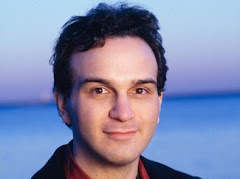The billing on the BPO website was a concert of youthful works by Mozart and Mahler by the young Gustavo Dudamel on 11 June 2015. Personally, it was a first for me to hear the Berlin Philharmonic in their Philharmonie Hall in Germanic repertoire. Having heard the BPO in London and Lucerne under Karajan and in Singapore under Rattle, this was entirely a superlative musical experience for me.
The concert began with the Mozart Serenade No 9, K320 (Posthorn); sans the two D major Marches K 335 Nos 1 and 2 that sometimes precede and follow the Serenade.
A full-capacity Philharmonie greeted Dudamel with rapturous applause as he came on to conduct the Mozart. This was a full-blooded BPO Mozart performance with no apologies to the absence of period performance mannerisms. Led by the experienced concertmaster Daniel Stabrawa, the BPO strings were a delight with sufficient tonal heft but sweetness and lightness whenever necessary.
Particularly affecting were the Trio of the first Minuet, the Concertante and the Rondeau movements, which had major solos especially for the flute and oboe, taken by the golden-toned Emmanuel Pahud and Albrecht Mayer respectively.
Their florid parts dovetailed intimately, but projected well into the far reaches of the Philharmonie. Dudamel chose an apt and flowing speed for the Andantino and therefore did not turn the movement into a dirge as some conductors make it out to be.
The remaining two movements (the second Minuet and Finale) were suitably festive in atmosphere. A slight intonation blip by Gábor Tarkövi on the posthorn marred his golden-toned solo in the second Minuet.
Using very spare hand gestures, Dudamel took the final Presto at a spanking pace and the BPO rose to the challenge and brought the festive movement to its glorious conclusion. A very mature performance of the Mozart from the youthful Dudamel, who had previously hidden his conducting immaturity behind the more Romantic and modern works in the repertoire.
In the second half, we heard a most gloriously conceived Mahler Symphony 1 from Dudamel. He exuded fantastic control over the opening harmonics and the 7-octave drone on A, which some commentators have mentioned is like a “musical walking on eggshells”.
Exerting steady control and gradual changes of pace, Dudamel directed a gloriously conceived and structurally sound first movement, which concluded with an energetic burst from the fantastic horn and trumpet sections of the BPO.
Another unsung section of the BPO is the double bass group that began the Ländler in a very appropriate “heavy” manner. It was lovely to hear a double section that plays so clearly and well. The superb violins answered the double basses and Dudamel coaxed some really luscious “glissandi” from them in the Trio section of the second movement.
A supremely legato and lyrical interpretation of the third movement’s opening solo by BPO principal double bassist, Matthew McDonald set a wonderful tone for the movement. The BPO played the “Klezmer section” with an appropriate swing before the contemplative section, which features material from the fourth song from Mahler’s Lieder eines fahrenden Gesellen (Die zwei blauen Augen) that almost lulled me to sleep.
The opening dissonant chord of the fourth movement, which Mahler denoted “as an outcry of a deeply wounded heart” was stunning in tonal depth and execution as Dudamel and the BPO tore into the movement known as “From the Inferno to Paradise”.
Other standout moments include a passionately played D flat section by the superlative BPO strings between Figure 18 and 19 of the Universal Edition score and a gut-wrenching fugato initiated by the creamy-toned violas just before Figure 45.
However, nothing was as magnificent as the ending, with Dudamel spurring the superb BPO horns and trumpets to stratospheric heights and bringing Mahler’s earliest symphonic opus to a really grand conclusion. Dudamel and the BPO enjoyed numerous curtain calls and the resounding applause certainly marks him out as a maestro who is fast-maturing and of genuine class.
Footnote: One may watch this concert via the Digital Concert Hall website:- https://www.digitalconcerthall.com/en/concert/20444
Subscribe to:
Post Comments (Atom)



























































No comments:
Post a Comment